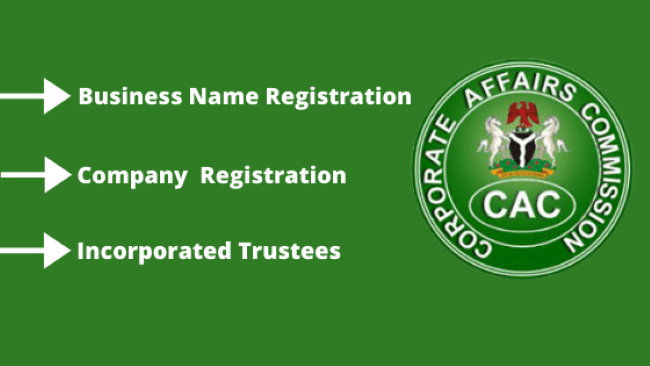CAC Launches AI-Powered Portal, Targets 30-Minute Business Registration

In a bold stride toward Nigeria’s digital economic transformation, the Corporate Affairs Commission (CAC) has unveiled an AI-powered business registration platform, marking a significant leap in the ease of doing business and startup formation across the country.
The Registrar-General of the CAC, Malam Hussaini Ishaq Magaji (SAN), announced the initiative at the 2025 Stakeholders’ Forum held in Port Harcourt, describing it as a “complete overhaul” of the Commission’s legacy Company Registration Portal (CRP).
According to Magaji, the upgraded portal integrates Artificial Intelligence and biometric validation technologies to streamline registration workflows, significantly reduce approval times, and increase accessibility for startups, entrepreneurs, and investors — both local and foreign.
What’s New: Intelligent, Seamless, Faster
Key highlights of the next-generation CAC portal include:
- Instant Business Name Approvals: The system can auto-approve available names within seconds, using AI to suggest viable alternatives if a preferred name is taken — similar in ease to setting up an email account.
- Single-ID Registration: Entrepreneurs can now register their businesses using only their National Identification Number (NIN), eliminating the need for bulky documentation or third-party authentication.
- 30-Minute Completion Goal: The platform targets a full business registration and certificate generation in under 30 minutes, subject to real-time NIMC validation. To address potential verification bottlenecks, CAC has introduced AI-based facial ID matching as a fallback option.
- Enhanced Security: Two-Factor Authentication (2FA) and One-Time Password (OTP) verification will soon be mandatory for all transactions to prevent unauthorized access or alteration of corporate records.
- Mobile App Incoming: A CAC mobile app is scheduled for release in Q4 2025 to provide real-time access to business registration, compliance tracking, and customer support.
Private Sector Partnerships and Global Reach
In a move to decentralize service delivery and deepen reach, Magaji disclosed that the CAC is currently reviewing over 100 Super Agent applications, including foreign-based entities, to serve as decentralized facilitators of business registration services across Nigeria and the diaspora.
The Nigerian Inter-Bank Settlement System (NIBSS) was cited as one of the key partners under consideration — a partnership that could create seamless integration between financial and corporate data ecosystems, enhancing compliance and investment onboarding processes.
Implications for Entrepreneurs and Investors
This AI-led transformation is expected to:
- Accelerate startup formalization, making Nigeria a more attractive hub for small businesses and foreign direct investment (FDI).
- Reduce regulatory red tape, aligning Nigeria with global best practices in digital governance and e-government.
- Support capital market deepening, by formalizing businesses and creating a clearer pipeline for potential listing, venture capital, or private equity investment.
For angel investors, VCs, and fintech stakeholders, the development reduces onboarding friction and enhances KYC (Know Your Customer) processes — a key component for scale and compliance in the digital economy.
Fee Review and Service Reforms Coming
To sustain these advancements, Magaji noted that CAC would revise certain service fees effective August 1, in order to support system upgrades and ensure continuous quality delivery.
Stakeholder Engagement at the Forefront
The Port Harcourt forum was attended by key leaders from the legal, financial, and SME communities including:
- Cordelia Eke, Chairperson, NBA Port Harcourt Branch
- Sebastian Essien, Chairman, ICSAN
- Dogala Sakpege, Chairman, NASME
- Dr. Mechi Brown, Director of Industry, Rivers State Ministry of Commerce and Industry
Participants engaged in interactive sessions with CAC’s technical team, where real-time resolution was provided on long-standing registration and compliance challenges.
BRANDECONOMY Analysis: Nigeria’s Regulatory Tech Leap Is Long Overdue
The CAC’s transition to AI-powered automation could be the most impactful reform since the introduction of e-filing in the early 2010s. With Nigeria targeting a more competitive standing in the World Bank’s Ease of Doing Business Index, such tech-enabled reforms are crucial for formalising the economy and attracting innovation-led capital.
While implementation will require continuous iteration — especially regarding data integrity from agencies like NIMC — the direction is clear: Nigeria is pivoting from bureaucracy to smart governance, and the CAC is now a frontline player in that evolution.











